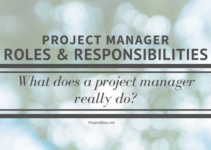
Imposter Syndrome is the belief that you will be discovered as a fraud – that you don’t actually know what the hell you’re doing. Even if you’ve got the degrees, the knowledge, and maybe even the experience, others will realize that you really shouldn’t be there. It’s actually not uncommon, and if you experience it, you’re in good company. Maya Angelou, Jodie Foster, Seth Godin, Dr. Margaret Chan, and a long list of other highly accomplished people have been quoted as experiencing it.
Scroll to the bottom to download 11 Proven Strategies to Overcome Imposter Syndrome
11 Strategies to Overcome Imposter Syndrome
1. Identify and challenge the negative thoughts.
Cognitive Behavior Therapy, or CBT, is a practice that recognizes the relationship between thoughts, feelings and behavior. If you tell yourself you’re not qualified, then you’ll begin to feel inadequate and act accordingly.
Recognizing the thoughts that trigger the feelings is an important first step. Identify the thoughts that come up when you experience the self-doubt. Look at these objectively and challenge them.
If you say to yourself “someone will figure out that I’m a fraud”, challenge that with the fact that you are where you are based on your merit. Recognize what you’ve done to get there.
When imposter syndrome strikes, recognize it for what it is. Then challenge those doubts by recognizing all your successes that got you where you are so far.
Leigh Espy, ProjectBliss.net
2. Recognize that you’re a work in progress.
You won’t know everything, nor does anyone else. You’re constantly learning, and even failures are opportunities to grow.
Remember Michael Jordan’s quote, “I’ve missed more than 9000 shots in my career. I’ve lost almost 300 games. 26 times, I’ve been trusted to take the game winning shot and missed. I’ve failed over and over and over again in my life. And that is why I succeed.”
3. Focus on what you bring to the table.
You have a unique combination of experience and perspective. No one else can be exactly like you. This gives you unique value that no one else has.
4. Change your language.
Once you realize you have unique value, change your internal dialogue. Don’t talk down to or criticize yourself. Don’t use words such as “it was just…”, or “only” when referencing your accomplishments.
A friend once told me about her job as “I’m just a…” and then gave a job title that requires creativity, problem solving, and many other skills. When I scolded her and pointed out all the amazing skills she has, it took her a moment to recognize that she did indeed bring a lot to the table!
Don’t minimize your accomplishments with qualifiers that diminish their value.
5. Accept compliments.
The same advice regarding language goes for accepting compliments. When someone compliments your work, accept it graciously and recognize you’ve done something worth complimenting.
6. Change your body language.
Act as if you are already the confident version of yourself you wish to be.
Amy Cuddy explains how this works in her wildly popular Ted Talk “Your Body Language Shapes Who You Are”. She explains that “We are also influenced by our nonverbals, our thoughts and our feelings and our physiology.”
She and her team ran experiments in which they had test subjects adopt high-power poses or low-power poses for two minutes, and then tested hormone levels (testosterone and cortisol). They found changes in the subjects’ testosterone and cortisol levels after only two minutes. “So two minutes lead to these hormonal changes that configure your brain to basically be either assertive, confident and comfortable, or really stress-reactive, and feeling sort of shut down.” So faking it can actually lead to real change. If you have not seen this video yet, watch it. Seriously.
7. List your accomplishments.
Recognize all that you have succeeded in or managed to overcome.
You are strong and capable. You’ve done things that required courage before, and you have possibly even changed someone’s life through an act of kindness or support.
8. Discuss with successful friends.
Have conversations with friends who you see as bold and accomplished.
It’s possible they’ll disclose having this experience as well, which can normalize the tendency to doubt oneself. Advice on how they dealt with it, along with their encouragement, can help you move through this self-doubt.
9. Focus on helping others.
When you take the focus off yourself, and offer support and value to others on your team, you not only lessen the stress of self-doubt, but you gain confidence by adding value and helping others succeed.
10. Get involved in professional organizations in your industry.
Christine Cristiano, CSS, Certified Career Strategist in Canada (christinecristiano.wordpress.com) works with mid-career professionals and often encounters imposter syndrome in her clients.
She shared that many of her clients who get that big promotion often have these feelings of self-doubt.
“I advise my coaching clients to get involved with their industry association. I found that when you are able to offer someone in the same industry resources or information, it can boost your confidence.”
11. Accept it.
You may never completely escape from imposter syndrome. Especially if you continue to step out of your comfort zone to seek growth opportunities.
As you continue to succeed and reach for new challenges, it may emerge again.
But when it emerges, recognize it for what it is, and move through it.
I like Carl Richards’s strategy in this quote from a New York Times article, “I’ve learned to think of it as a friend. So now when I start to hear that voice in my head, I take a deep breath, pause for a minute, put a smile on my face and say, ‘Welcome back old friend. I’m glad you’re here. Now, let’s get to work.’”
Summary
If you’re facing imposter syndrome, you’re likely feeling self-doubt because you’re taking on challenges and growing. See it as a good sign, and keep learning what you need to know to succeed.
Recognize it for what it is, and tell yourself that it’s part of your professional growth.
But to make it easier, I’ve created a handy download of this list of strategies to print and use when you’re not feeling as confident as you’d like. I hope you find it helpful!



I really liked the article. I thought this was an unnatural feeling and was afraid to even explore and understand where this was coming from. Thank you!
I’m glad you found it helpful! Some studies have even found that “imposter syndrome” is more frequently experienced by more educated and intelligent people. And you’re not alone in this experience. I hope that the strategies listed provide various approaches to combat it in the future.